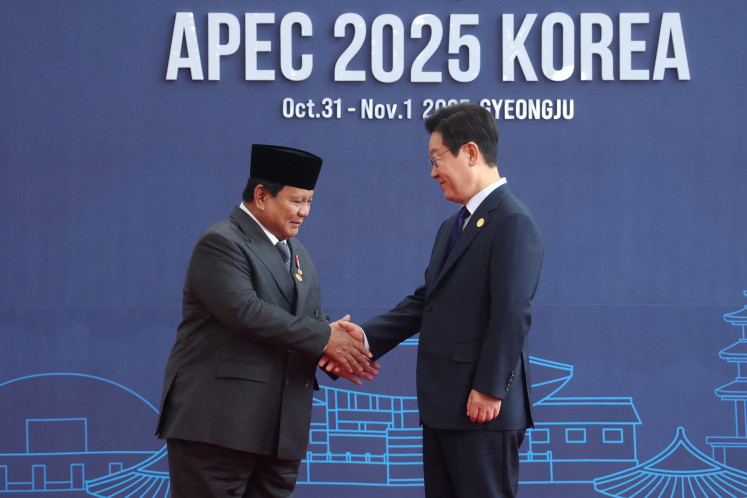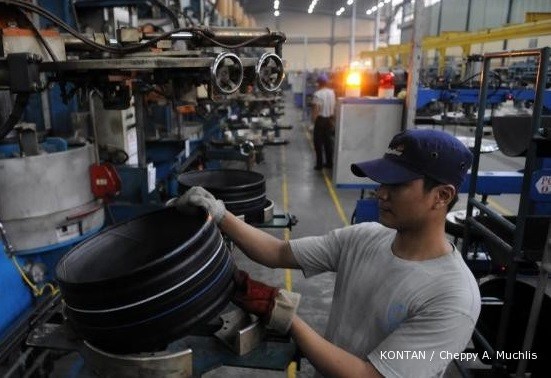Popular Reads
Top Results
Can't find what you're looking for?
View all search resultsPopular Reads
Top Results
Can't find what you're looking for?
View all search resultsRI's nanotech researchers want more govt protection
Researchers with the Indonesian Society for Nanotechnology have called on the government for protection, saying that without strong government policies, the nano industry would become marginalized by imported products
Change text size
Gift Premium Articles
to Anyone
R
esearchers with the Indonesian Society for Nanotechnology have called on the government for protection, saying that without strong government policies, the nano industry would become marginalized by imported products.
The association said efforts to protect local nanotechnology products had not worked.
'The government, represented by the National Standardization Agency, has made an effort by establishing the Indonesian National Standard for nanotechnology products. However, they have not put any policy in place to protect these products from being overwhelmed by imports,' said the society's executive director Suryandaru recently.
Suryandaru said institutions including the Agency for the Assessment and Application of Technology (BPPT), the National Nuclear Energy Agency and the Indonesian Institute of Sciences (LIPI) had started to develop the nanotechnology industry in Indonesia from 2005. Since then, many researchers had created nano products.
'Indonesia has a great deal of potential for developing nanotechnology for coatings, pharmaceuticals, food and agricultural products, which we have focused on improving,' he said.
He pointed out that many manufacturers, such as cosmetics and pharmaceutical companies, were interested in applying nanotechnology for their products. The cosmetics companies, for example, use materials like nano-rice to produce whitening effects for consumers.
Nanotechnology increases the effectiveness of the whitening formula and does not affect circulation, Suryandaru said.
'These cosmetics, which use nanotechnology, are mostly herbal. So they are safe for the skin,' he added.
Bambang Subiyanto, the director of the LIPI's Center for Innovation, said researchers faced challenges in creating nanotechnology products due to a lack of equipment and facilities.
'If we want to succeed in competing with products from foreign countries, we should create ones with local characteristics,' he said. 'Our researchers don't have the equipment that can produce nano-devices for use by industries.'
He added that to support the development and research of nanotechnology, the government needed to set up an institution that would supervise and protect local nano products from
imported ones.
'Indonesia has a budding nanotechnology industry, but we need government support on this,' he said.
Zuhal, the chairman of the National Committee for Innovation, said the committee would try to bridge researchers with industries so that the public could benefit from nanotechnology. (tam)










